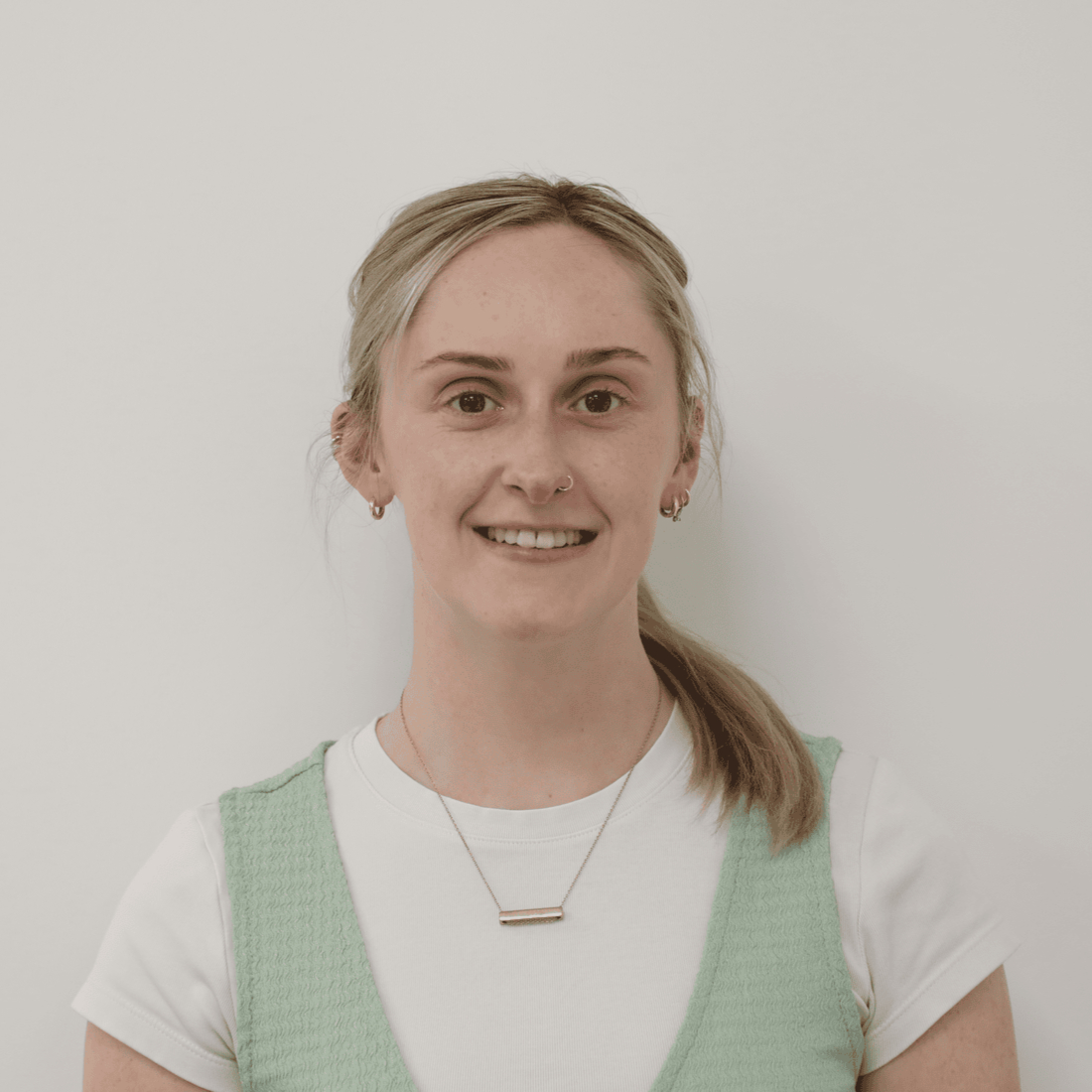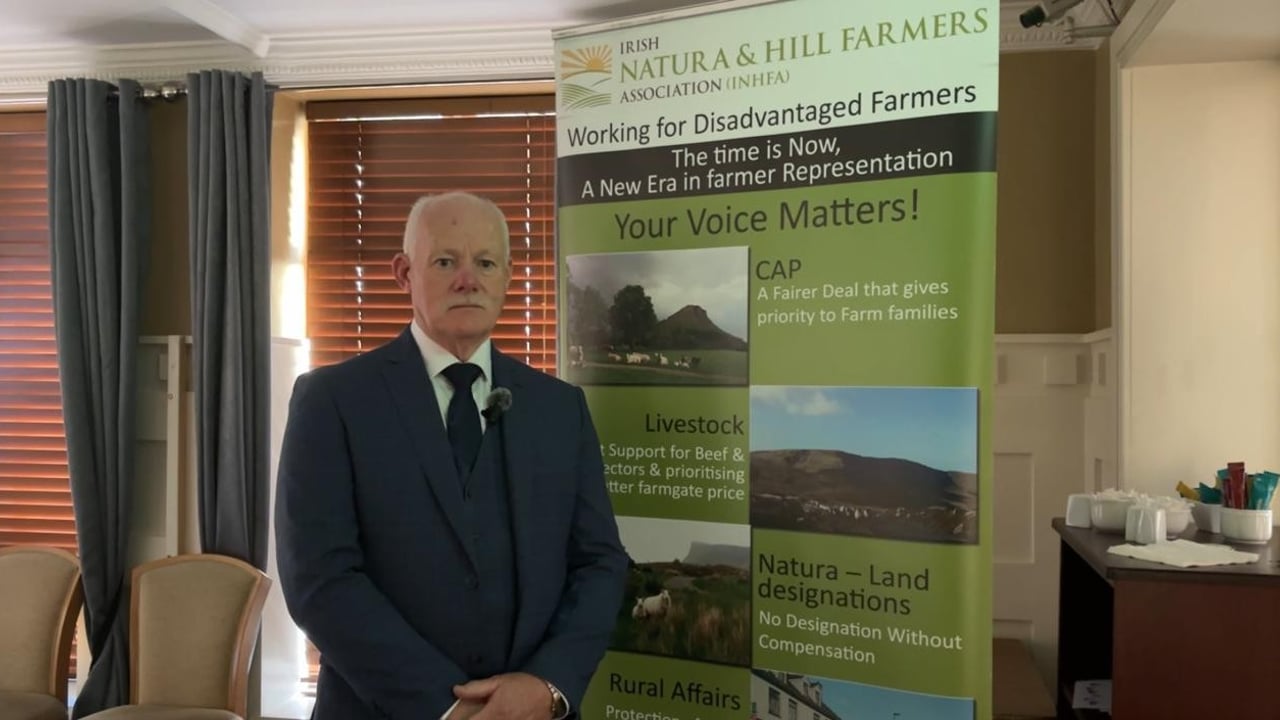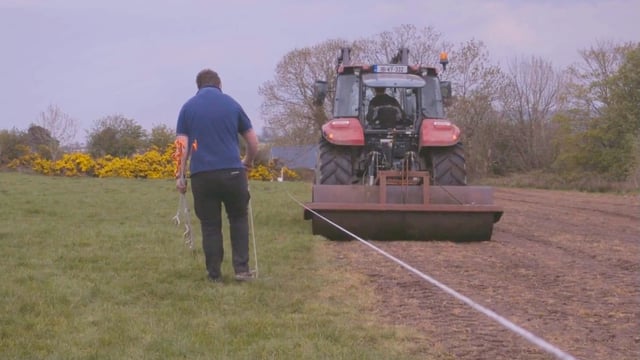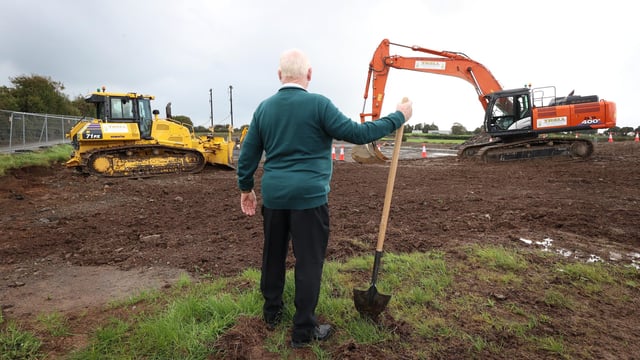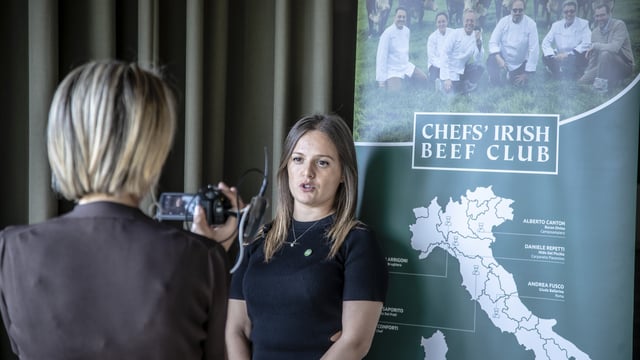Pheilim Molloy ratified as new INHFA president
Pheilim Molloy has been ratified as the new president of the Irish Natura and Hill Farmers' Association (INHFA) at their annual general meeting (AGM).
The AGM took place today (Thursday, September 11), at the Percy French Hotel in Strokestown, Co. Roscommon.
The event involved a panel discussion from experts in suckler and hill farming.
Attendees had the opportunity to ask questions and voice their concerns to Minister for Agriculture, Food, and the Marine, Martin Heydon who was also in attendance.
Agriland spoke to Pheilim Molloy at the event to find out what he hopes to achieve in the role.
He said: "The new Common Agricultural Policy (CAP) programme is a major issue, and we will be engaging with the Department of Agriculture, Food, and the Marine (DAFM) as part of the CAP consultative process to ensure that there's a CAP programme in place from 2028 to 2034 that meets the needs of farmers.
"We see a great need for supports for farmers and those farming activities."
Young farmers
When asked how he planned to keep young farmers engaged, Molloy said: "An income from farming is very volatile.
"So security of income is a major issue, access to land is also another major issue.
"Engagement, I personally feel, there needs to be more emphasis on farming right through from national school, up.
"So, you get children engaged in the knowledge of providing food for themselves and what that actually means.
"But by and large it's security of income which will drive most people into farming activities."
Challenges
There are many challenges facing agriculture at the moment and one that is particularly topical at the moment is the Mercosur agreement.
Molloy highlighted that there is a "huge threat" arising from the Mercosur deal and that it is something the INHFA is "very concerned" about.
Molloy explained: "We see that there needs to be more supports put in place for small suckler farmers in terms of schemes and for the sheep sector.
"The number of cattle available is dropping, sheep flocks are dropping so definitely from a government perspective, and because of the fact that suckler and sheep farming are the only two activities that you can carry out on most our land.
"Our farmers don't have the option of moving to dairy or tillage, so you're very much restricted to the farming activity.
"That's why it's critical that there's proper supports for the sheep and suckler sectors."
